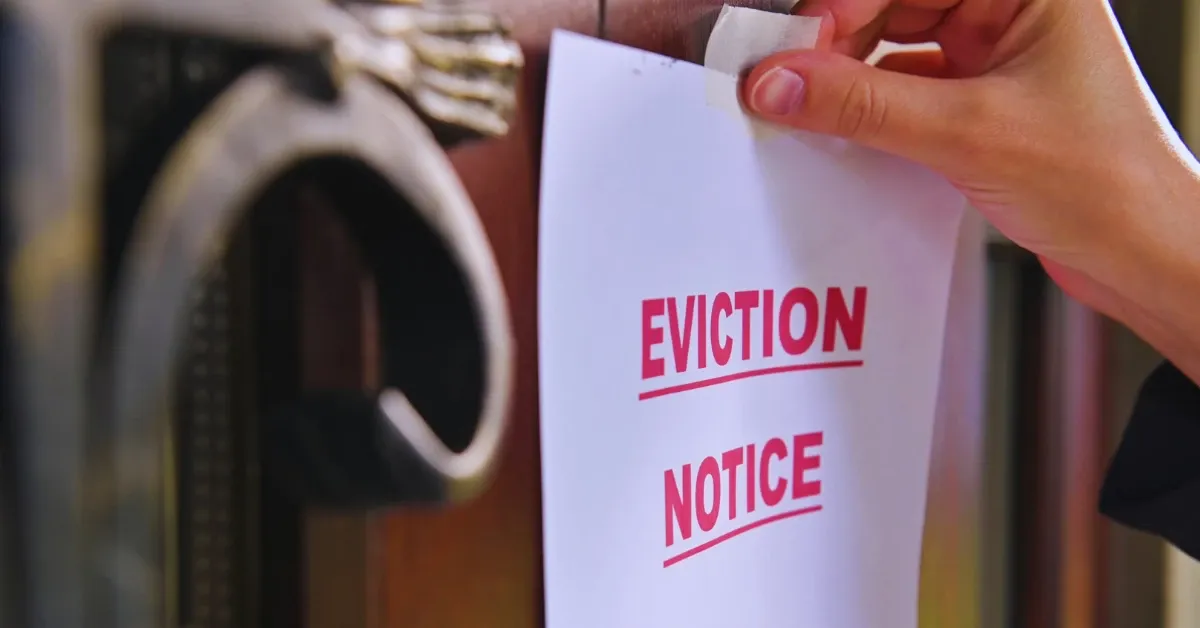A Massachusetts landlord is responsible for maintaining rental properties and ensuring tenant rights are upheld. As a landlord in Massachusetts, you play a critical role in maintaining your rental properties and upholding the rights of your tenants.
Additionally, landlords must ensure that tenants are not discriminated against and that they have privacy rights.
Landlords must also properly handle security deposits and must provide timely notice of rent increases or changes in tenancy.
By fulfilling these responsibilities, you can manage your properties effectively and foster a positive relationship with your tenants.

Providing A Safe And Healthy Living Environment
As a landlord in Massachusetts, it’s your responsibility to ensure the property you rent out is safe and healthy for your tenants. Here are some key points to keep in mind:

Ensuring The Property Meets Health And Safety Codes
- Familiarize yourself with and comply with all relevant health and safety codes. These include building codes, fire codes, and sanitation codes.
- Regularly inspect the property to ensure it meets these codes. This includes checking for proper wiring and smoke alarms, safe plumbing and heating systems, and a pest-free environment.
- Be aware of lead-based paint regulations. If the property was built before 1978, federal law requires you to disclose any known lead-based paint hazards and provide a pamphlet to tenants outlining the risks.
Perform Regular Maintenance And Repairs
- Conduct regular maintenance checks that include examining the roof, foundation, heating, and cooling systems, plumbing, and electrical systems.
- Repair any defects or structural issues as quickly as possible to ensure the safety of your tenants.
- In the event of an emergency or natural disaster, ensure that proper safety protocols are in place and that tenants have access to emergency numbers.
- Keep a record of all maintenance and repair work to help ensure that issues are identified and addressed in a timely manner.
Address Any Hazardous Conditions Promptly
- Respond to requests from tenants about hazards promptly and address the issue as soon as possible.
- Ensure that tenants are aware of their responsibilities to report any safety hazards on the property.
- Be proactive in addressing hazards before they become an issue, such as addressing water leaks before they cause mould growth.
- Make sure tenants know how to contact you or emergency contact if issues arise that need immediate attention.
Rent Collection And Lease Obligations
As a landlord in Massachusetts, it’s essential to know your responsibilities in terms of collecting rent and fulfilling lease obligations. Here are the key points to consider:
Setting Fair Rental Fees
- Rent control in Massachusetts was discontinued in 1994, meaning landlords have more control over rent prices. However, they must ensure they’re setting fair and reasonable rental fees.
- Consider factors such as the property’s location, condition, and amenities when determining the rental price.
- Have a clear understanding of what comparable properties in the area are renting for to ensure you’re not overcharging tenants.
Creating And Enforcing Lease Agreements
- Massachusetts law requires that lease agreements be in writing for tenancies of more than one year. However, it’s a best practice to put all lease agreements in writing to ensure legal compliance and avoid misunderstandings between tenant and landlord.
- Lease agreements should cover key issues such as the rent price, due date, length of the lease, security deposits, and maintenance and repair responsibilities.
- Massachusetts law requires landlords to provide tenants with a “summary of the law” outlining their rights and obligations.
Collecting And Handling Security Deposits And Rent Payments
- Massachusetts law limits the amount of security deposits landlords can request. Landlords can’t request more than the first and last month’s rent, along with a security deposit of no more than one month’s rent.
- Security deposits must be held in a separate interest-bearing account, with interest paid to tenants annually.
- Landlords must provide tenants with written notification of where their security deposit is being held.
- Rent payments must be collected on the due date outlined in the lease agreement. Landlords can send reminders or charge late fees if rent payments aren’t received on time.
Remember, as a landlord in Massachusetts, it’s important to be familiar with these rental and lease obligations to stay in compliance with state law and maintain a positive relationship with your tenants.
Resolving Tenant Disputes And Eviction Proceedings
Landlords have a duty to maintain a good relationship with their tenants, but that doesn’t mean that disputes or issues won’t arise.

It’s important to handle these situations effectively and professionally. Here are some key points to keep in mind when dealing with tenant complaints and disputes:
Effective communication
Miscommunication is often the cause of tenant disputes. It’s important to promptly respond to any complaints or issues and to keep your communication clear and professional.
Listen to your tenant’s complaints and try to find a solution that satisfies both parties.
Mediation
If communication alone doesn’t seem to resolve the problem, consider mediation.
A third-party mediator might be able to help you and your tenant find a mutually beneficial solution.
Retaliation
It’s illegal in Massachusetts for landlords to retaliate against a tenant who has filed a complaint.
Even if you disagree with their complaint, you can’t take retaliatory measures against them.
The eviction process in Massachusetts
In rare cases, tenant disputes can lead to eviction proceedings. Here’s what you should know about evictions:
Legal grounds for eviction in Massachusetts include:
- Non-payment of rent.
- Lease violations.
- Damage to the property.
- Illegal activities on the property.
Steps to follow:
Serve a “notice to quit”
This is a legal document that notifies the tenant that they must leave the property by a certain date.
File a summons and complaint in court
If the tenant doesn’t leave, you can file a summons and complaint with the court. You will have to wait for a court date before you can proceed with the eviction.
the court hearing
Both you and your tenant will need to appear in court. If the judge rules in your favour, the tenant will be given a specific time period to vacate the property.
Request a writ of possession
If the tenant still refuses to leave, you can request a writ of possession, which is a court order that allows the sheriff to remove the tenant from the property.
Maintaining Privacy And Confidentiality
Respect Tenant Privacy Rights
As a landlord in Massachusetts, you must prioritize respecting your tenant’s privacy rights.
It is essential to understand that every tenant has a right to privacy, and you cannot invade it at your convenience. Here are some ways to respect their privacy:
- Do not enter the rental property without their consent unless it’s an emergency.
- Respect their right to exclude others from the rental unit.
- Do not look for reasons to enter their rental property regularly, especially during odd hours.
- Do not eavesdrop on your tenants or try to pry into their personal lives.
- Do not install hidden cameras or microphones inside the rental unit.
Handling Tenant Data And Personal Information
As a landlord, you have access to your tenant’s personal information, such as their social security number, bank account details, and other identifying details.
Therefore, you must handle their data with care to protect their privacy rights. Here are some tips:
- Store all tenant personal and sensitive information in a secure location.
- Do not disclose tenant information to other people without their consent.
- Be attentive when sending emails or text messages and strip any sensitive details or personal identifiers on documents before sharing with others.
Providing Advance Notice Before Entering Rental Property
As mentioned earlier, you cannot enter your tenants’ rental units without prior notice, except in case of emergency.
Tenants need their privacy and need to be informed beforehand if their landlord or repairman has to enter their rental property.
Providing advance notice will not only show respect for the tenant’s privacy but also eliminate any misunderstandings regarding access.
Here are some Massachusetts law requirements for providing notice:
- Landlords must provide at least 24-hour notice before entering the rental unit.
- The notice should state the reason for entry as well as the date and time.
- Unless it’s an emergency, landlords must enter rental units during regular business hours, between 7 am and 8 pm.
Respecting tenants’ privacy and handling their information with care is essential to becoming a responsible landlord in Massachusetts.
As you abide by Massachusetts law requirements, you will protect your tenant’s privacy rights while maintaining your rental property well.
Nondiscrimination Policies And Procedures
As a landlord in Massachusetts, it is your responsibility to ensure that every prospective tenant is treated equally and fairly.
This means that landlords should not discriminate against any tenants on the basis of their race, colour, national origin, religion, sex, familial status, or disability.
Here are some key points to consider when it comes to nondiscrimination policies:
- Ensure that all potential tenants are given equal access to rental units, regardless of their background.
- Do not make any discriminatory statements or require any discriminatory standards during the application process.
- Familiarize yourself with local and federal fair housing laws to make sure you stay compliant.
Lawful Reasons For Denial Of A Rental Application
Although landlords cannot discriminate against tenants based on protected classes, there are some lawful reasons for denying a rental application.
The following are some examples of reasons you may deny an application:
- The tenant has a poor credit score or a history of not paying rent on time.
- The tenant has a criminal history that could pose a danger to other tenants or the property.
- The tenant has insufficient income to cover rent or a history of job instability.
When denying an application, it is important to document the reasons and make sure they are consistent with fair housing laws.
Understanding Which Tenant Types Are Protected Under The Law
Landlords in Massachusetts must also be aware of which tenant types are protected under the law.
Federal fair housing laws prohibit discrimination based on seven protected classes: race, colour, national origin, religion, sex, familial status, and disability.
Massachusetts fair housing laws add four additional protected classes: age, ancestry, veteran status, and genetic information.
It is important to recognize that landlords cannot refuse to rent to a tenant based on their status in any of these protected classes.
Additionally, landlords cannot require tenants in any protected class to meet higher standards or pay more than other tenants.
FAQs
What Are The Basic Responsibilities Of A Landlord In Massachusetts?
As per Massachusetts state law, landlords are responsible for providing habitable living conditions, performing repairs, maintaining common areas, and respecting tenants’ privacy rights.
Are Landlords Responsible For Pest Control In Massachusetts?
Yes, landlords are responsible for maintaining pest-free living conditions for tenants. They must ensure that the apartment is free from rodents, bed bugs, and other infestations.
Can A Landlord Enter A Tenant’S Apartment Without Permission In Massachusetts?
No, landlords must provide a 24-hour notice before entering any tenant’s apartment. They must respect their privacy rights, except in emergencies, or if the tenant abandons the rental unit.
What Happens If A Landlord Fails To Fulfill Their Responsibilities In Massachusetts?
If landlords fail to fulfill their obligations, tenants can withhold rent, file a lawsuit, or repair and deduct the cost of repairs from their rent. Landlords can also face legal action and penalties for breaching the state’s tenancy laws.
Conclusion
As a landlord in Massachusetts, you hold the reins to secure, habitable housing. Remember, your duties include prompt repair and maintenance, proper eviction protocol, and observance of the tenant’s privacy.
By following these guidelines, you’re not just complying with the law, but elevating your rental business.
Reference
https://www.mass.gov/guides/landlord-responsibilities
